Directions (1-5): Study the following information carefully and answer the questions given below:
Eight persons P, Q, R, S, T, U, V and W are sitting around a circular table in such a way that all of them are facing outside, but not necessarily in the same order. All of them are going to visit different places i.e., Delhi, Kolkata, Mumbai, Ahmedabad, Goa, Patna, Lucknow and Uttarakhand, but not necessarily in the same order.
Two persons sit between R and S who sits opposite to the one who visit Delhi. T is neither immediate neighbor of W nor R. R sits second to left of W who visits Mumbai. P sits opposite to U who is immediate neighbor of W. The one who visit to Uttarakhand is not an immediate neighbor of U and P. T and R do not visit Goa. The one who visit to Ahmedabad sits immediate to the right of the one who visit Mumbai. S does not visit Ahmedabad and Patna. T is an immediate neighbor of the one who visit Patna. Q does not visit Delhi. The one who visit Lucknow does not sit opposite to the one who visit Goa. S does not visit Lucknow and Goa.
Q1. Who sits second to the left of the person who visit Kolkata?
(a) T
(b) P
(c) V
(d) Q
(e) None of these
Q2. What is the position of S with respect to the person who visit Ahmedabad?
(a) Third to the right
(b) Fourth to the right
(c) Second to the right
(d) Third to the left
(e) None of these
Q3. Who among the following visit Goa?
(a) W
(b) Q
(c) P
(d) T
(e) None of these
Q4. Four of the following five are alike in a certain way and so form a group. Which is the one that does not belong to the group?
(a) S-V
(b) T-W
(c) P-U
(d) Q-R
(e) T-S
Q5. Which of the following is true regarding U?
(a) U is an immediate neighbor of T
(b) U faces the one who visit Patna
(c) U sits immediate left of W
(d) U sits third to the left of T
(e) None of these
Direction (6-10): Study the following information carefully and answer the questions given below:
In a certain code:
“Bonus paid by company” is coded as “ct re dv cz”
“Paid by company” is coded as “re dv cz”
“Profit share single” is coded as “nf mp td”
“Single policy limit company” is coded as “nf gh dv lo”
Q6. What is the code for the word “Single”?
(a) td
(b) nf
(c) ct
(d) dv
(e) None of the above
Q7. What is the code for the word “Paid”?
(a) re
(b) mp
(c) cz
(d) td
(e) Cannot be determined
Q8. What is the code for the word “Company”?
(a) td
(b) mp
(c) dv
(d)gh
(e) None of the above
Q9. What is the code for the word “Policy”?
(a) gh
(b) mp
(c) lo
(d) cz
(e) either gh or lo
Q10. Which of the following word is coded as “td”?
(a) Share
(b) Profit
(c) Single
(d) Policy
(e) Cannot be determined
Directions (11-15): Each question consists of three statements followed by two conclusions numbered I and II. Consider the given statements to be true even if they seem to be at variance with commonly known facts. Read all the conclusions and then decide which of the given conclusion logically follow from the given statements using all statements together. Mark your answer as:
Q11. Statements: Some Keys are locks.
All locks are doors
No doors are windows
Conclusions: I. Some doors are keys is a possibility.
II. Some windows are not locks.
(a) If only conclusion I follows
(b) If only conclusion II follows
(c) If either conclusion I or conclusion II follows
(d) If neither conclusion I nor conclusion II follows
(e) If both conclusion I and conclusion II follow
Q12. Statements: Some pen are refill.
All refill are pencil
All pencil are marker
Conclusions: I. Some pen are marker.
II. Some marker can be refill.
(a) If only conclusion I follows
(b) If only conclusion II follows
(c) If either conclusion I or conclusion II follows
(d) If neither conclusion I nor conclusion II follows
(e) If both conclusion I and conclusion II follow
Q13. Statements: Only a few pencil is a paper
All papers are books
Some books are notes
Conclusions: I. Some Paper are notes is a possibility.
II. Some books are not Pencil.
(a) If only conclusion I follows
(b) If only conclusion II follows
(c) If either conclusion I or conclusion II follows
(d) If neither conclusion I nor conclusion II follows
(e) If both conclusion I and conclusion II follow
Q14. Statements: No shops are buildings
All buildings are apartments
Only a few apartments are rooms
Conclusions: I. All rooms can be building.
II. Some apartments are not shops.
(a) If only conclusion I follows
(b) If only conclusion II follows
(c) If either conclusion I or conclusion II follows
(d) If neither conclusion I nor conclusion II follows
(e) If both conclusion I and conclusion II follow
Q15. Statements: All Bottles are glasses
Only a few mugs are Bottles
No glasses are plates
Conclusions: I. Some bottles are not plates is a possibility.
II. Some glasses are bottles.
(a) If only conclusion I follows
(b) If only conclusion II follows
(c) If either conclusion I or conclusion II follows
(d) If neither conclusion I nor conclusion II follows
(e) If both conclusion I and conclusion II follow
Solutions
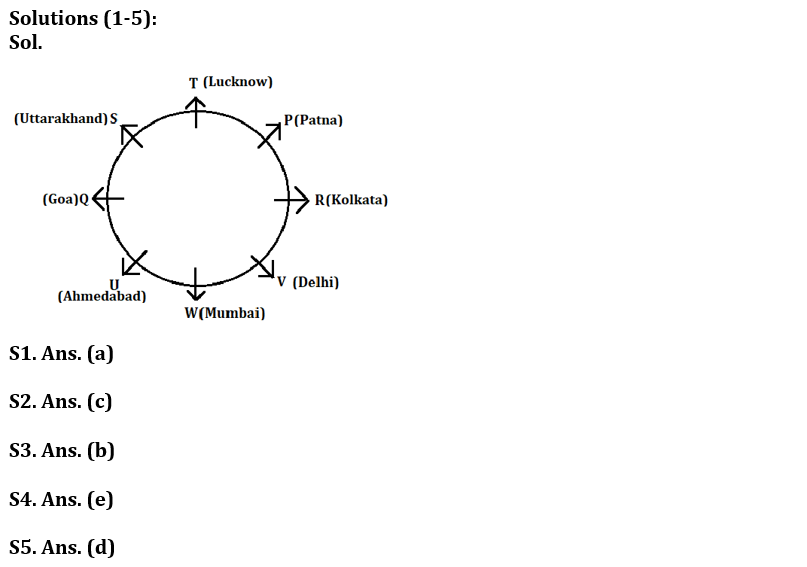
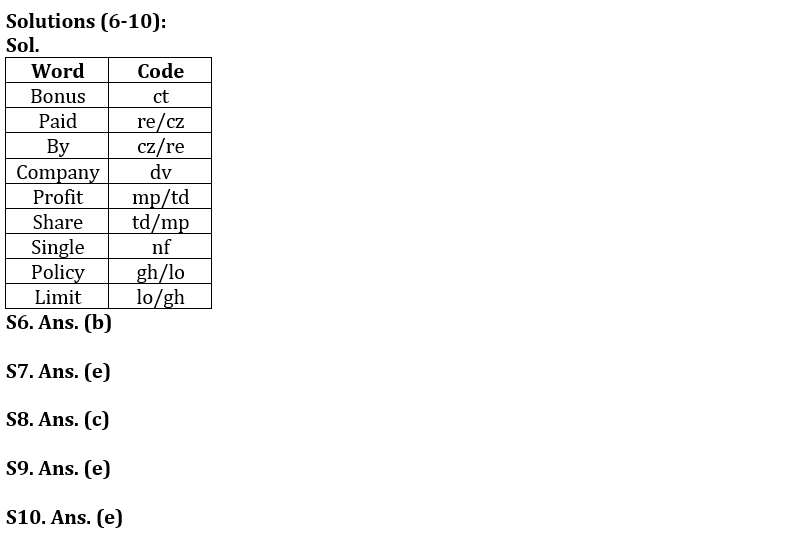
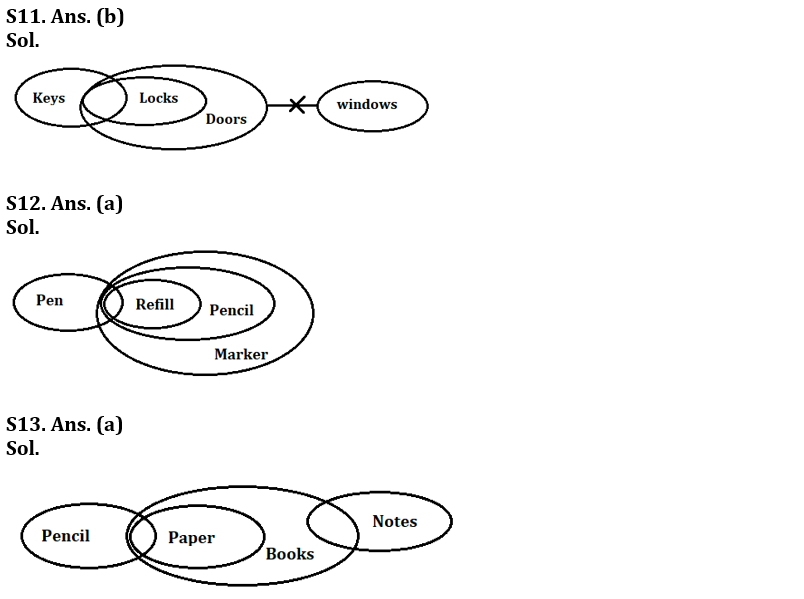
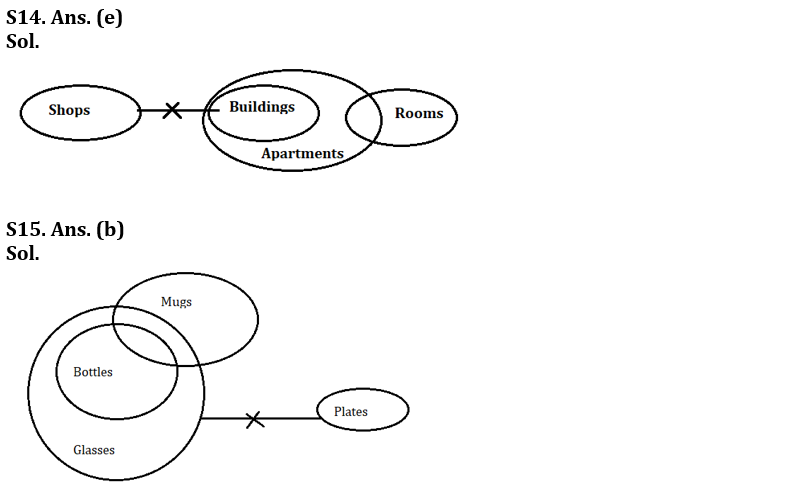


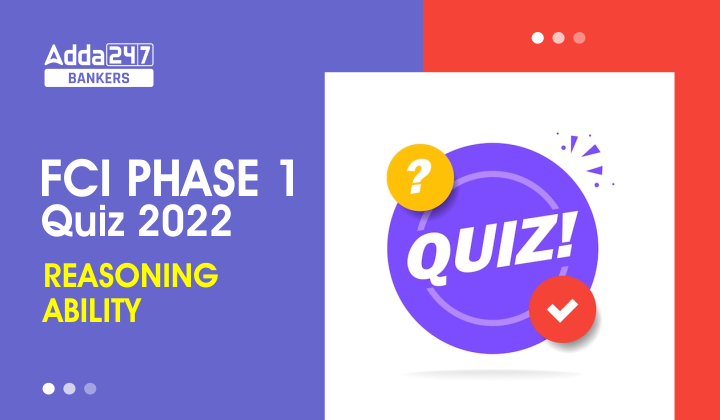
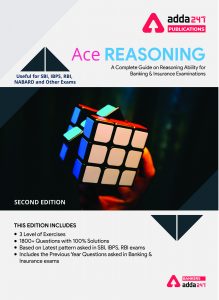

 GA Capsule for SBI Clerk Mains 2025, Dow...
GA Capsule for SBI Clerk Mains 2025, Dow...
 The Hindu Review October 2022: Download ...
The Hindu Review October 2022: Download ...
 Delhi CSIR CRRI Recruitment 2025 Notific...
Delhi CSIR CRRI Recruitment 2025 Notific...







